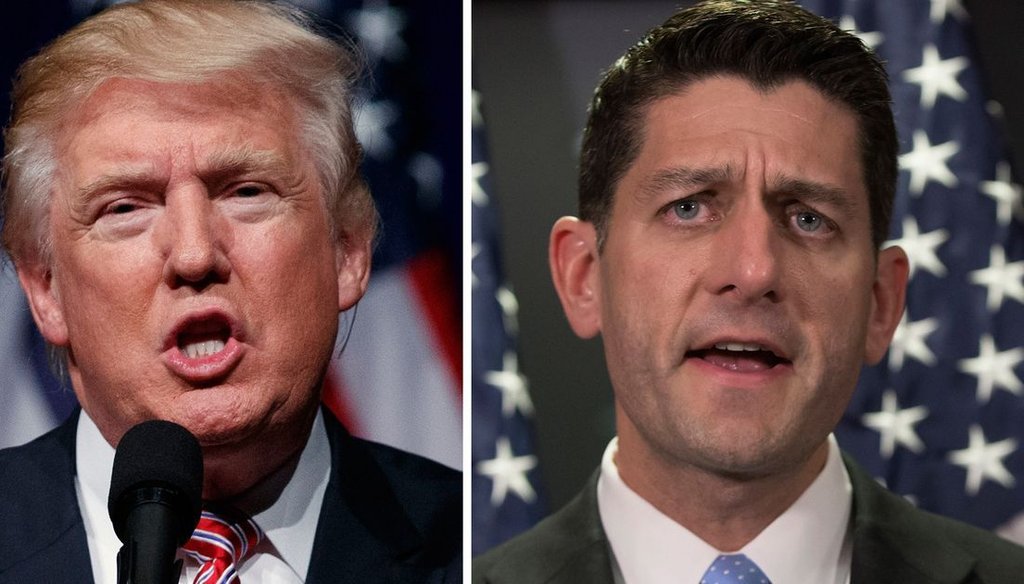Get PolitiFact in your inbox.

Fact checks we did on the Republican replacement for Obamacare that was pushed by President Donald Trump (left) and House Speaker Paul Ryan attracted big page views in March 2017.
Fact checks we did on three claims about "Trumpcare" and Obamacare received the most page views during March 2017 -- understandably so, given the intense news coverage of the Republicans’ failed attempt in Congress to replace Obamacare.
Following closely, clickwise, were fact checks we did on two claims related to President Donald Trump and foreign policy.
Here’s the rundown.
1. Trumpcare: Subsidies
U.S. Sen. Ron Johnson, R-Wis.: The GOP’s Obamacare replacement would reduce subsidies that help lower-income people buy health insurance, but also "expand the entitlement" by giving subsidies to higher-income people "that Obamacare never helped."
Our rating: True.
The Republican plan did offer subsidies, known as refundable tax credits, that were smaller for lower-income people than under Obamacare. And it offered the credits to people with higher incomes than Obamacare does.
2. Obamacare: ‘Death spiral’
U.S. House Speaker Paul Ryan, R-Wis.: Obamacare "is in what the actuaries call a death spiral."
Our rating: False.
This January 2017 fact check got new life during the debate about the GOP replacement bill. A death spiral is a health industry term for a cycle with three components — shrinking enrollment, healthy people leaving the system and rising premiums. When we did the fact check, the latest data showed enrollment in Obamacare was increasing slightly; younger (typically healthier) people were signing up at the same rate as last year; and while premiums were increasing, that wasn’t affecting the cost to most consumers due to built-in subsidies.
3. Trumpcare: Insurance executives
U.S. Sen. Tammy Baldwin, D-Wis.: "Trumpcare would allow insurance execs to personally make millions off your health care."
Our rating: Mostly False.
One provision in the GOP replacement plan was a tax break worth an estimated $400 million over 10 years. It’s possible that money could have funded raises for health care company executives. But the tax break was for the companies, not individuals; the companies could use the savings for other purposes; and even if the savings were used for raises, there was no evidence that executives would get millions.
4. Foreign policy: Terrorism/travel ban
Wisconsinite and Trump chief of staff Reince Priebus: The seven nations identified in Trump's travel ban were "identified by the Obama administration as the seven most dangerous countries in the world in regard to harboring terrorists."
Our rating: Half True.
Prompted by concerns about terrorism, the Obama administration did put those seven countries -- Iraq, Syria, Iran, Sudan, Libya, Somalia and Yemen -- on a list that makes travel into the United States somewhat more difficult. But that list doesn’t necessarily identify the seven as being the most dangerous.
5. Foreign policy: Jared Kushner
U.S. Rep. Mark Pocan, D-Wis.: "The son-in-law of the president met with Russian officials at the Trump Tower after having them come in the back door."
Our rating: Mostly True.
It had been confirmed that Trump’s son-in-law, Jared Kushner, met with the Russian ambassador in December 2016 at Trump Tower, but not confirmed that the ambassador entered through a back door of the tower.
Our Sources
PolitiFact Wisconsin items as noted






















